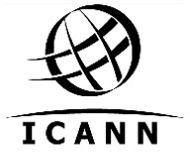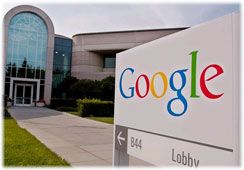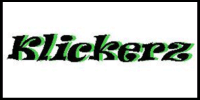|
Executives
at traditional media and entertainment companies
believe user generated content on the web is one
of the biggest threats to their business. A
survey of senior company leaders conducted by consulting
firm Accenture
revealed that 57% of the
respondents see the rapid growth of amateur digital
videos, podcasts, mobile phone |
|
photography,
wikis and social-media blogs as one of the top three
challenges they face today. In addition, 70% of
respondents said they believe that social media,
one of the largest segments of user-generated content,
will continue to grow, compared with only 3% who
said they view social media as a fad.
Accenture's
Gavin Mann said "This
is just the beginning for a rapidly changing landscape
where the media content environment grows more fractious
and the user gains more control and power.
Traditional, established content providers will have to
adapt and develop new business and monetization models
in order to keep revenue streams flowing. The
key to success will be identifying new forms of content
that can complement their traditional strengths.” |

|
|
The
study included interviews with industry giants like Roger
Faxon, CEO of EMI Music Publishing; Leslie
Moonves, CEO of CBS; Doug Neil, senior
VP of digital marketing for Universal Studios;
and Sir Martin Sorrell, chief executive of WPP
Group PLC. They and their counterparts at other
companies have apparently decided they will have to join
the fray. 68% of the respondents said they
believe that within three years their businesses will be
making money on user-generated content and 62%
said they believe their companies will make money
through advertising and sponsorships of social media
(good news for websites offering that kind of content). Asked
to identify which type of content offers the highest
growth potential for their industry over the next five
years, short form video was an overwhelming
winner, cited by 53% of the respondents, followed
by videogames (13%), full-length film (11%)
music, (11%), consumer publishing (9%) and
business publishing (4%).
Posted April 30, 2007 |
|
With
the continued audience migration away from
old forms of media to the web, the Audit Bureau of
Circulations (ABC) latest
numbers from the newspaper industry,
released this morning, will come as no surprise. For the
fifth straight semi-annual reporting period overall |
|

|
newspaper
circulation experienced big drops, despite easing
comparisons. For all papers reporting daily circulation,
the Newspaper Association of America (NAA) said
that daily circulation fell 2.1% while Sunday
tumbled 3.1%. Some of the largest declines
occurred at metro papers. The Dallas Morning News
hemorrhaged 14.2% of daily circulation while
Sunday fell 13.3%. The Miami Herald lost 5.5%
of its daily circulation and 10.1% of its Sunday
circulation. The Los Angeles Times lost 4.2%
of its weekday and Sunday was down 4.7%. You can
see the numbers for the top 25 American newspapers here. |
|
For
the past couple of years, there has been a push by
publishers to focus on total audience data, which takes
into account Web site visitors as well as their print
readers. The NAA launched NADbase in the fall of
2005, which tracks the readership of print and online of
about 100 newspapers. ABC said it is in the beginning
stages of approving a combined audience figure to be
used on their semi-annual reports detailing paid
circulation.
Posted April 30, 2007 |
|
ICANN
has finally been cleared by a U.S. Federal
Court to terminate disgraced registrar RegisterFly.com’s
accreditation as soon as possible. Yesterday ICANN
announced that Judge Manuel J. Real had
issued a preliminary
injunction that also orders Registerfly to
give |
|
ICANN current and accurate
data for all of RegisterFly’s domain names (something
Registerfly failed to provide despite being directed to
do so April 16 when the court issued a temporary
restraining order against them). ICANN has invited
accredited registrars to submit "statements of
interest" starting Monday (April 30)
to act as a transfer provider, so Registerfly
customers can gain access to their domains. The
registrar handling the transfers will temporarily hold
the names and help registrants transfer to any ICANN
accredited registrar of their choice. Unfortunately is
is believed that thousands of domains have already
been lost during the meltdown at Registerfly and
that inaccurate registration records there may make it
impossible to identify the owners of thousands more. |

Will
Registerfly finally
be exterminated?
|
|
The Court
decision also requires RegisterFly to immediately post a
notice on its web site stating that ICANN has issued a
notice of termination of the company's accreditation to
serve as a domain registrar. That notice had not yet
been posted this morning (April 28) and the company was still
taking orders for domain registrations. The "ICANN
Accredited Registrar" seal has finally been removed
from the site, something ICANN had demanded several
weeks ago, but the final nails still remain to be
hammered into the coffin.
Posted April 28, 2007 |
|
Demand
Media's long-awaited relaunch of the .TV
extension is set for Tuesday (May 1). Premium
domains that were taken off the market when Demand Media
contracted with Verisign to take over retail
management of the extension late last year are to be
made available again |
|

Demand
Media's Quinn Daly speaking at last month's
eNom Resellers Summit |
Tuesday on a first come
first served basis. Demand will also unveil a set
of proprietary tools that day that they say will make it
possible for anyone to produce their own personal video
channel on a .tv domain, complete with social networking
features. James Barclay at AllThings.tv
just published an interview
with Demand Media VP of Marketing and Communications Quinn
Daly covering the changes that are coming to .tv
next week. The .tv relaunch is also a major topic in our
April Cover Story
on Demand Media CEO Richard Rosenblatt.
Rosenblatt told us the company planned to spend heavily
to promote .tv this year. Daly told Barclay "Our
objective is simple: make .TV the hottest TLD. We are
going to do this by driving consumer adoption of .TV as
a personal portal to discover, program and share rich
media based on each user’s interest. We are also going
to |
|
do this by promoting great
examples of marquis .TV sites. The launch day for .TV
– May 1st – is also the one year anniversary of
Demand Media. So we have a lot to celebrate."
Posted April 27, 2007 |
|
Tidbits.
I've seen a lot of interesting bits of news and
information today, so rather than focusing on one item
I'll touch on several. An auction for Rex.com
will close at Sedo
tomorrow morning and with the current high bid standing
at $395,000 (which has met the reserve), if a
transaction is completed it will be the highest sale
ever made from the Sedo website. Sedo has done larger
deals as brokers (including Vodka.com at $3
million last fall)...I continue to be |
|

Can
anything stop the
newspaper ship from sinking? |
stunned by how
quickly the web is sinking the centuries old newspaper
business. First quarter earnings reports are coming out
and they are abysmal for the papers. McClatchy
Co. saw their earnings plunge 67.5% to $9
million from $27.7 million a year ago. At E.W.
Scripps earnings sank about 9%, compared to
the same period in 2006 and even worse, their hope
for the future, an interactive media division, is
projecting revenues 50% lower than previous
estimates. Adding to the perfect storm, the poor housing
market has caused one of the newspaper's best revenue
sources - classified real estate ads - to take a
significant drop this year. There will be more bad news
when the Audit Bureau of Circulations releases
its latest numbers next week. Insiders say total daily
circulation for the six months ended in March will be
off about 2.5%, while Sunday is down 3%.
It is even worse in major metro areas like Dallas,
Miami and San Diego where a 5% or more
drop is expected... |
|
Traditional electronic
media like TV has not been immune from the web
fallout either. Network TV ratings have taken an
unexpectedly large dip this season. Live-only broadcast
ratings are down anywhere from 11% to 15% - a big
decline from the last three years when broadcast
viewership has been basically flat versus the seasons
before. Analysts are not sure why but point to the
Internet, poor programming, time shifting via DVRs and
cable TV as the likely culprits. The networks are now
making more than 250 of their shows available online
in an effort to follow and retain their audience. It
remains to be seen how that gambit will work out. Having
grown up as a media junky who loved newspapers,
magazines, radio and TV (and very much loves the
Internet today) watching this cataclysmic audience shift
from the old mediums to the new has been one of the most
remarkable changes in my lifetime. It is also why I
believe so much in domains. They are the foundation
that web media outlets (and online businesses of every
kind) are built on.
Posted April 26, 2007 |
|
If
you are interested in the protecting your domain assets
don't miss the Domain Masters web radio
show tonight at 7pm U.S. Eastern Time on WebmasterRadio.fm.
The weekly |
|
show is usually hosted by Moniker.com
CEO Monte Cahn, but Cahn is traveling today so
noted domain attorney and co-founder of the T.R.A.F.F.I.C.
conference Howard Neu will be hosting tonight's
program. Neu is also a veteran broadcaster who hosted
his own TV talk show in South Florida for many
years.
Neu's
guests will be fellow attorney Phil Corwin who is
the Legal Counsel for the Internet
Commerce Association (ICA) and ICA Executive
Director Jude Augusta. Corwin is also a highly
experienced lobbyist in Washington D.C. and the
ICA has him working on behalf of domain owner's
interests in the Nation's Capital. He is expected to
talk about what he is doing there to try to diffuse the
increasing number of threats to the assets of domain
owners, including unwarranted price hikes in
registration |

Howard
Neu
will host Domain Masters tonight |
|
fees, ICANN
encroachment into regulatory areas that go beyond the
scope of their mandate, their mishandling of the Registerfly
situation (that has resulted in the loss of thousands
of |
|

ICA
Executive Director Judge Augusta (left)
and ICA Legal Counsel Phil Corwin
will be
guests on Domain Masters radio tonight
|
domain names and web
businesses around the globe) and many other issues.
Augusta will discuss why
the ICA needs the help of individual domain owners and
all companies with a stake in this industry to
counteract the forces that are threatening the rights of
domain registrants and, in the case of professional
domain investors, their very livelihood. Several major
companies donated the initial seed money needed to get
the ICA started but to give domain owners a real voice
in their future all hands are going to be needed on
deck. |
|
If you miss
tonight's live program, within the next month it will be
added to Moniker's archive
of previous web casts so you will be able to listen as
your schedule allows.
Posted April 25, 2007 |
|
ICANN
is the USSR of the Internet - that is the
title of a must-read article by Burke Hansen
published at the The
Register today. The article features
Hansen's interview with Karl Auerbach, the last
publicly elected board member at ICANN, who was North
America's direct |
|

Karl
Auerbach |
representative on ICANN's
Board of Directors (before the organization eliminated
seats held by those who had been publicly elected).
Auerbach told Hansen "It is amazing how much ICANN
resembles the old USSR. ICANN is very much like
central bureaucracy that is drawing up five year plans
for the internet. And like the USSR that had a never
ending problem with getting the right products to
customers, ICANN has warped internet innovation
in the domain name space with enough red tape to choke a
Godzilla or two." Auerbach said ICANN is a very
closed organization that from day one has had a
circled-wagon mentality of "us versus them".
Auerbach, like thousands of domain registrants, was also
highly critical of the sweetheart deals ICANN has handed
out to domain registries. |
|
"ICANN and NTIA
have been like Santa Claus and the Easter
Bunny to Verisign. Verisign's negotiating
team is so good at negotiating the pants off of ICANN
and NTIA that we ought to send 'em to the Middle East
to work out a peace settlement! It is amazing how ICANN
and NTIA transformed Verisign's job to maintain .com
and .net into permanent ownership,"
Auerbach said. Auerbach added, "It's also pretty
clear that ICANN has been derelict in its
responsibilities; and that dereliction is costing
the community of internet users roughly $380,000,000
every year, year-in, year-out. And that does not
count the tax that ICANN imposes onto the internet
community, a tax that cumulates to tens and tens of
millions of dollars every year." |
|

|
"ICANN likes to say
that it is not a governmental body. But with performance
like ICANN's, and with its system of taxation, not to
mention its closed doors and user-exclusionary
processes, ICANN certainly looks and smells like a
governmental body," Auerbach said. "ICANN is
almost irrelevant - except for the fact that it is
collecting monopoly rents and controlling a marketplace
for the massive benefit of the trademark and DNS
registry industries and the mirror-image massive
detriment of the community of internet users. Apart
from the financial costs and the damage that |
|
ICANN is causing to
internet innovation, the great potential damage that
ICANN can cause is to be a model for future institutions
of internet governance. ICANN is best conceived of as a
sign that says "do not take this road".
Those are just samples from Hansen's article. Do
yourself a favor and read the entire
piece.
Posted April 24, 2007 |
|
Is
the honeymoon over for social networks? At a
time when everyone is buzzing about Web 2.0
features like social networking and user generated
content, In-Stat
reports that their future remains somewhat uncertain.
Even though online communities (social networks)
have |
|
experienced
stellar growth in recent years, the high tech market
research firm sees both membership and monetization as key
issues for social networking sites and predicts that only
sites that can overcome these issues will survive.
In-Stat analyst Jill
Meyers said "In order for a social networking
site to be successful, it must attain a critical mass, and
competition is fierce to attract new members." Site
operators are still struggling to find profitable business
models. Though eMarketer projects that ad spending
on social networks will reach $865 million this
year, $525 million of that is expected to go to one
site - MySpace.com. That leaves other rivals
like |

|
|
Facebook,
Bebo and Friendster to fight over the
remaining $200 million.
Just having a social
networking site is certainly no guaranty of success.
According to comScore Media Metrix visitor growth
rates have ranged from a 40% decline for LiveJournal.com
to a 1,177% gain for Sconex.com. Meyers
said some site operators might do well to break out of
the youth-oriented pack and look at a different set of
demographics. "Despite an increasingly older
MySpace community, Baby Boomers are frequently
overlooked when it comes to social networks,"
Meyers said. "So far, sites have focused their
attention on a younger demographic, which is finite,
fickle and limited in expendable income."
Posted April 23, 2007 |
|
"Major
newspaper companies announced even more ominous results
during first-quarter conference calls on Thursday,"
Erik Sass wrote in his Media Daily News
column today at MediaPost.com
(free registration required to read). Sass added that online
ad growth for |
|

|
the newspapers' web
editions is also slowing at the very they need it
more than ever. The giant Tribune Company kicked
off the bad news with its announcement than
first-quarter earnings slumped to $.08 cents a
share from $.32 in the same period last year.
Also Thursday the New York Times announced their
overall profit fell 9.9% from last year. In
contrast, online revenue at the Times jumped
21% and it was up by 17% at Tribune, but
those are slower growth rates than in the past. Last
year the Times online growth rate was 39% and it
was 29% for the Tribune. Newspaper analyst Ken
Doctor from Oversell Inc. said "While
newspapers' online properties may continue enjoying
double-digit growth throughout 2007, it's increasingly unlikely
to offset the big drops in print ad revenue."
Going forward, Doctor predicted "more clustering of
newspapers, a lot more cost reduction in production
costs and as many cuts in circulation costs as they can
manage. Then, they'll have to circle the wagons
around the newsroom and the advertisers and hunker
down."
Posted April 20, 2007 |
|
|
|
The
.org registry has followed the lead of the .com,
.net and .info registries in announcing a
wholesale price increase effective October 18,
2007. PIR (the Public Interest Registry), |
|
operators of the .org
registry, sent a letter to registrars yesterday
notifying them that prices would rise from $6.00
to $6.15. Last week it was announced that .info
prices (determined by their registry, Afilias)
will go up by the same amount three days earlier on October
15. The contracts that PIR and Afilias have with ICANN
allow them to raise prices by as much as 10% a
year but both decided to limit their increases to 2.5%
this year. Earlier this month Verisign, who
operates the .com and .net registries, announced they
were boosting .com wholesale prices by 7% (to $6.42)
and .net prices by 10% (to $3.85),
also in October. These are all |

|
|
prices the registry will
charge individual registrars. It remains to be seen how
the wholesale jumps will affect retail prices charged by
the various registrars like GoDaddy, eNom
and Network Solutions.
Posted April 19, 2007 |
|
Registerfly
Update: ICANN's application for a temporary
restraining order against moribund registrar
RegisterFly was granted Monday by U.S. Federal Court
Judge Manuel J. Real. Real ordered Registerfly to
hand over to ICANN current and accurate data for all of
its domain names. |
|

|
With that registration
information, ICANN belives it will be able to follow
through with their plan to initiate a bulk transfer of
Registerfly names to another registrar. That would allow
many victimized Registerfly customers to finally regain
access to their domains, though thousands of names may
have been permanently lost during the company's
meltdown. The Court has also scheduled a preliminary
injunction hearing for April 26, 2007, which, if
ICANN prevails, will extend the force and |
|
effect of the temporary
restraining order for a longer period of time. ICANN
also plans to continue pursuing RegisterFly in the
Central District of California court for, among other
things, breach of contract. A copy of the restraining
order can be seen here.
Posted April 18, 2007 |
|
Google
has decided to ban adult names from its AdSense
for Domains program starting May 31. In a
letter to AdSense partners yesterday, Google said
"Effective May 31, 2007, adult domains are no
longer allowed in the AdSense for Domains program. We
define adult domains as |
|
any domain whose
name, content or advertising is lewd, graphic, or profane;
this includes domains with profanity in addition to those
with obscene content. This means that you must remove
any adult domains from your AFD (Adsense for Domains)
portfolio by May 31." In a FAQ about the
policy change, Google offered this definition of adult
domains: "Adult domains are domains whose name,
content, or advertising includes adult content—i.e., any
content that refers to or suggests nudity, partial nudity,
sexual imagery/acts, lewd/graphic or profane |

|
|
language. If you still are
having difficulty distinguishing between adult and
non-adult domains, please contact your partner manager
for guidance or refer to the FCC's definitions of
obscenity and profanity, found at http://www.fcc.gov/cgb/consumerfacts/obscene.html."
Posted April 17, 2007 |
|
Real estate tycoon Donald Trump (who also
stars in NBC-TV's The Apprentice) usually
gets what he wants. Not this time. The billionaire
businessman took a fancy to the domain name TrumpFurniture.com
and filed a WIPO
complaint to try to take it away from the
current
|
|

|
owner (eStore of Brooklyn,
New York). eStore didn't even bother to respond to
the complaint but Trump still lost as the panel noted
that his name is also a generic word that can be
used with other words (such as furniture) that the Trump
name is not associated with. Sole panelist Douglas M.
Isenberg wrote "The nature of the “other
word” is particularly important where the trademark is
not exclusive to the complainant. In this case, the
Panel observes that the TRUMP trademark is also an
English word with multiple meanings (including, for
example, to “produce a sound as if from a trumpet”;
“playing card in the suit that has been declared
trumps”; “outdo”; “proclaim or announce with or
as if with a fanfare”) and also a part of trademarks
owned by parties other than Complainant. In light of the
above, the Panel is not |
|
persuaded on the record
before it that the Disputed Domain Name is confusingly
similar to a trademark in which the Complainant has
rights."
Posted April
17, 2007
|
|
Major
corporations have been filing more and more lawsuits
aimed at stamping out "typosquatting"
on their trademarks. The practice involves registering
domains that are misspellings of famous brand names,
then collecting revenue from pay per click ads placed
|
|

|
on the pages surfers reach
by mistake. A California based company called CitizenHawk
hopes to capitalize on the backlash from trademark
owners with a new service called TypoSquasher. In
a press
release announcing the service today, the
company described TypoSquasher as an "on-demand,
Web-based solution that crawls the Web to search for
possible misspellings of domain names, identifies
instances of typosquatting that infringe on trademarks,
sends notices of fraudulent activity to domain owners,
interrupts the flow of money being paid to
cybersquatters, and automates legal action to get
fraudulent sites stopped for good." |
|
Overstock.com,
a public company traded on NASDAQ, is one
CitizenHawk's first customers. Overstock's affiliate
program manager Jake Bailey said “Using
TypoSquasher, we’ve already identified and removed
affiliates from our program who were infringing on
derivations of our brand URLs. Before utilizing this
service, we had to find all the infringements on our
own. TypoSquasher is the only solution that allows us to
discover and deal with our ‘fat finger URLs’ in one
place.” ("Fat finger" is computer lingo for
the unintentional inclusion of a keystroke when typing).
The cost of the TypoSquasher service starts at $995
per month.
Posted April
16, 2007
|
Researchers
Explore Scrapping Internet. If a headline like that
doesn't get your attention then nothing will! That is probably
why the online edition of the South Carolina newspaper TheState.com
used it today above an article
from AP writer Anick Jesdanun about U.S.
government funded research into rebuilding the web.
Jesdanun wrote "A new network could run parallel with the
current Internet and eventually replace it, or perhaps aspects
of the research could go into a major overhaul of the existing
architecture. These clean-slate efforts are still in their early
stages, though, and aren't expected to bear fruit for another 10
or 15 years - assuming Congress comes through with funding."
Though no immediate changes are in the offing, there is a lot of
interesting food for thought in this article.
Posted April
13, 2007
|
How Madison Avenue
let down Corporate America and how both failed.
That's is the provocative title of a must-read post from
T.R.A.F.F.I.C.
Conference co-founder Rick |
|

Rick
Schwartz |
Schwartz at RicksBlog.com
today. In a post every corporate CEO, brand manager and
advertising agency should read, Schwartz says the
failure of corporations to acquire the generic domains that
define their categories has been one of the
biggest mistakes in business history.
Using Hotels.com as
an example, Schwartz told a Hyatt executive
"Imagine if Hyatt had gotten hotels.com. Instead of
you being 1 of hundreds of hotels listed, including all your competitors, and paying for each lead or each booking, Hyatt would have received
ALL the leads. Would that not increase sales? Would that not increase market share?" |
|
"Step in
Madison Avenue. These folks are sooooo hooked on
"Branding" that they forgot the REASON they brand is to
INCREASE SALES. So their REAL job is to increase sales. THAT is
ultimate branding. Having your product everywhere. Funny how in time they have LOST SIGHT of that basic core contract. So Madison Avenue failed the hotel industry as well. IMAGINE, of all these high paid execs at all these companies and
not a single one could figure it out. Figure that if they own a domain like Hotels.com they would be a leader in their sector. But they are all so hung up on BRANDING that they would rather IGNORE a
reservoir of new business. New business snatched directly from the
competition!" That is just a brief snippet from
Schwartz's commentary. You can read the whole piece here.
Posted April
12, 2007
|
|
After
selling millions of dollars worth of domain names
in auctions at the T.R.A.F.F.I.C. conferences, Moniker.com
is taking it's act into more and more new venues. They
first branched off into the adult market with a live
auction at the Internext Expo in Las Vegas |
|
earlier this year. Now they
are set to sell off some great generic gambling domains
in a Silent Auction at the Casino
Affiliates Convention 2007 at the NH
Grand Krasnapolsky Hotel in Amsterdam May 3-5.
Over 2,000 names will be on the block, including Poker.com,
Slots.com Jackpots.com and many other gems. All CAC 2007 attendees will have
exclusive access to this auction. Conference attendees
will be provided with a free, special password granting
them access to the online auction and bidding which will
be hosted on the Moniker.com Web site. More information
on the auction can be found here. |

Auctioneer
Joel Langbaum (L) & Moniker.com
CEO Monte Cahn in action at T.R.A.F.F.I.C.
live auction in Las Vegas (March 2007) |
|
Individuals not attending
the CAC 2007 will also be able to participate by
purchasing an absentee bidder registration for $99.
Interested individuals should contact [email protected]
or call 1-800-688-6311. Official auction dates,
rules and procedures for all Moniker Live and Silent
Auctions can be found by visiting www.moniker.com/liveauction.
Posted April
11, 2007
|
|
Update
on the Registerfly Class Action Lawsuit: The Dummit
Law Firm (who initiated a class action suit
against Registerfly, ICANN and eNom)
has sent out an update announcing that tomorrow morning
(April 11) at 9:30am they will have a hearing
with Magistrate Judge Sharp in U.S. District
Court in Greensboro, North Carolina regarding
their request for a preliminary injunction (Editor's
Update April 13 - the
hearing has been continued to a later date). Clarke
Dummit wrote, "We have requested that
RegisterFly immediately release all domain |
|

|
names, allowing them to be
transferred to a new registrar. However, since we
believe that RegisterFly may be on
the verge of shutdown, we are also moving for an immediate
injunction, asking the Court to order that RegisterFly
turn over all data to ICANN, so that information
still “trapped” will be safe when RegisterFly inevitably
crashes completely. While the hope is that the Court
will grant an injunction requiring the release of all
domain names, and that RegisterFly will comply, data
escrow may, at least, protect you from permanent loss of
ownership, even if we are unable to get RegisterFly
to |
|
release
domains without further court action. This is an
inadequate remedy at best for those still trapped, but
we hope to get the parties moving toward a resolution." You
can read court documents at the Dummit web
site where they also have a page for more
regular updates.
Posted April
10, 2007
|
Media
Moguls Make Their Move Online. That's the title of an
interesting new article by Ronald Grover posted at BusinessWeek.com
today. Media companies are falling all over themselves, trying
establish their own franchise in the Web 2.0 world of
blogs, social networks and especially online video. Google,
News Corp. and NBC Universal have bought their way
in with acquisitions while others, like Viacom, are
building their own. Grover's article details some of the new
programming traditional media companies like Disney,
Time Warner and others are rolling out to try to make a
smooth transition to the web.
Posted April
9, 2007
|
It's
Sunday morning and those of you who still
subscribe to a print newspaper will probably
spend a good part of this Easter Sunday leafing through
a 5-pound slab of newsprint. But with the dramatic
changes roiling the newspaper business, how much life is
left in that paper you're looking at today? In one of
the more interesting articles I have seen on the topic, MediaPost |
|

|
writer Dave Morgan
wrote in his Online
Spin column this week (free subscription
required to read) "Ad revenue in most large
newspaper markets will keep dropping 3-5% per
year for the next five years. Real circulation -
excluding the tons of papers dumped on schools, hotels
and the constantly-churning “free ten-week trial”
will keep dropping 3-7% per year for the next
five years. Those two things are
going to happen. Major metropolitan newspapers are
largely powerless to stop them. Why? It’s
simple. Every day, fewer people are reading daily
newspapers than did the day before. Every day, more
people are using the Internet for their news and
information. Every day, the cost of energy, health care,
pension benefits, wages, ink and newsprint in the
cost-heavy industry goes up. Every day, more talented
people leave the industry than join it. Every day,
someone somewhere launches another new niche media
product - many times, a print product - that continues
to whittle away advertising revenue. That is daily
newspapers’ future, and they must confront it." |
|
Morgan
added, "Not only has this slow death killed morale
at the papers, but it has typically been done with no
vision for the future. The only future for those who
survive cuts is hope that they will survive the next as
well. Death by a thousand cuts - not a great way
to operate a healthy business." He went on to
suggest ways some papers might survive (including
cutting their content in half). In an interesting
coincidence, the same day Morgan's column came out, McClatchy
Newspapers (owners of the Miami Herald and
the Sacramento Bee among others) announced
a deal with Yahoo! to provide the online
giant with foreign news and commentary. McClatchy
apparently decided if you can't beat them join them
and it will be interesting to see how many print
operations follow their lead in the months and years
ahead.
Posted April
8, 2007
|
|
As
we head into this Easter holiday weekend,
many of you will have time to relax and catch up on some
reading. With excellent new domain blogs blossoming
like spring flowers, you certainly have a lot of
quality material to choose from now. T.R.A.F.F.I.C.
Conference |
|

|
Co-Founder Rick Schwartz
is the latest domain pioneer to join the blogosphere as RicksBlog.com
just bowed this week. Another fresh view comes from Australia's
Michael Gilmour who debuted Whizzbang's
Blog on Thursday. Those welcome additions
come just a few weeks after the birth of impressive
blogs from Frank Schilling (SevenMile.com)
and Sahar Sarid (Conceptualist.com)
that are being widely read and creating a lot of buzz.
When you add these new sites to the |
|
top quality blogs that have
already been publishing for some time now, you might
think there would be an awful lot of overlap. After all,
they're all writing about the same topic - domains. Yet
each of these writers has managed to stamp their work
with their own unique personality and perspective. |

New
bloggers
(L to R) Rick Schwartz, Michael Gilmour, Sahar
Sarid and Frank Schilling
|
These people
have the kind of experience and connections it takes to
offer truly valuable insight and break real news. If a
guy like Jay Westerdal was not taking time to
write the Domain
Tools Blog, we would have all missed his
revelation yesterday that it only costs Verisign |
|
14 cents to maintain
each .com name in their registry (yet they just
announced a price increase to $6.42 this week).
Writing is hard work and unless you try to write every
day yourself, I don't think you can appreciate how much time
and effort the people I've mentioned above, and many
other bloggers, are giving of themselves (without
compensation other than your appreciation) to further
the industry.
Are there
too many blogs out there now? Absolutely not. I'm
sure each of you could come up with a long wish list
of people you would like to get insight from on a daily
basis. Unfortunately, we will never see daily blogs from
some of the people on our personal dream teams due to the
significant time commitment required. Realizing that
makes me all the more appreciative of those who are
sharing their time, energy and expertise now.
Posted April
7, 2007
|

Jay
Westerdal
Domain Tools Blog |
|
The Internet
Commerce Association is calling on Congress
and the U.S. Department of Commerce to look at
the price increases Verisign announced for .com
and .net domains yesterday. ICA Legal Counsel Phil
Corwin said, "The 7% increase for .com
and the 10% |
|
increase for .net are the maximum
allowed under its registry operator contracts with ICANN,
and come at a time when the pricing of other Internet
services such as bandwidth, access and anti-hacker
protection continues to fall. The announced
increase for .com is particularly questionable, given
that had the contract been put out for competitive
re-bid rather than negotiated in secret to
resolve litigation brought by VeriSign against ICANN,
the base price would likely be at least one-third to
one-half as much as VeriSign’s $6 starting
point. Indeed, .net pricing fell by one-third when
a re-bid brought market forces to bear, and the .com
registry fee should be less than the $3.50 now
in effect for .net given the greater operating economies
of scale for that far larger top level domain." |

Phil
Corwin
ICA Legal Counsel |
|
Corwin
added, "The ICA believes that responsible public
officials engaging in thorough scrutiny of this
announced price increase are likely to conclude that the
new price for .com is unreasonable and that
VeriSign’s announced intent is inconsistent with the
general public interest as well as the specific interest
of domain name registrants."
Posted April
6, 2007 |
|
Writer
David
Kesmodel is reporting that phone
company giant Verizon has filed a federal
lawsuit against iREIT
for trademark infringement. Kesmodel wrote "The
suit, filed in iREIT’s |
|
hometown of Houston,
accuses the closely held company of operating more
than 90 domains that are typographical variations
of its trademarks, including verizonwirelessgames.com,
virizonpcs.com and virizonwirles.com. Verizon
says iREIT has been displaying pay-per-click
ads on the sites for various products that
compete with Verizon’s. The phone company is seeking
an injunction barring iREIT’s use of the names, as
well as |

|
|
damages of $100,000 per
name under the Anticybersquatting Consumer
Protection Act, which was enacted in 1999."
Posted April
6, 2007 |
Mark
Klein has joined Sedo
as the company's Director of Business Development.
Klein had been the Business Development Manager at Tucows
for the past five years and has over twelve years of sales
experience in internet solutions. At Sedo, Klein will be
responsible for managing relationships with key partners,
identifying new strategic partnerships and administering
international, wholesale and distributor sales. Sedo CEO Tim
Schumacher said, “Mark is a great addition to the Sedo
team, bringing with him a successful sales record and an
in-depth understanding of the domain market. We’re looking
forward to the future growth he will drive for the company.”
Klein replaces Jude Augusta who is now the Executive
Director of the Internet
Commerce Association.
Posted April
6, 2007
|
The
price hike everyone knew was coming for .com
and .net domains will hit on October 15th of this year. Verisign
today gave registrars a six
month notice to get ready for the increase.
Registrars currently pay Verisign a total of $6.25
for .com domains ($6.00 + a .25 ICANN fee). In
mid October that will jump to $6.64 ($6.42 + an
ICANN fee that was recently reduced to .22). It is a
7% jump in the base registration fee, made possible
(along with future increases) by the most recent
contract ICANN approved for Verisign to handle the .com
registry. Verisign is also raising the wholesale price
of .net domains to $3.85 (plus the .22 ICANN
fee). That is a 10% increase over the current
rate. The question now, is how much will
individual registrars raise their prices when the
wholesale price hike hits?
Posted April
5, 2007 |

|
|
Australia's
.au extension is currently one of the most
restricted ccTLDs in the world. Owners are not even
allowed to sell their domains, but major changes may be
on the way. The Australian Domain Authority ( the
organization that administers .au) commissioned |
 |
Nexus Research to
study public opinion on several issues, including
allowing .au domains to be sold, easing registration
requirements and allowing registrations in the top level
.au extension (currently, only second level .au
registrations, such as names in .com.au are
permitted). Today Nexus released some preliminary
results from their surveys. 51% of
current domain registrants favored being allowed to sell
.au while 38% were opposed. When the samples was
expanded to the general public (including many non
domain owners), the margin of those in favor slipped to 36%
for vs. 30% against (the remaining respondants
answered Don't Know or Don't Care). On the matter of |
|
allowing top level .au
registrations, 33% of current registrants were in
favor and 26% opposed. However, among the general
public 46% opposed changing the current second
level only policy while 34% was in favor of
opening up the top level. It is not known when final
decisions will be made on any changes.
Posted April
5, 2007
|
|
The
fortunes of domain owners are very much tied
to the boom in online advertising. Everywhere you look
there is more evidence that the tidal wave of ad money
headed to the web (and away from traditional media) just
keeps getting bigger. The London-based WPP
Group is |
|
one of the biggest
advertising companies on earth. In a very interesting
item by Enid Burns posted at ClickZ
today WPP CEO Martin Sorrell said only about half
of the money spent by the company's media buying
agency, GroupM, now goes to traditional media
with the balance going to new media (primarily
meaning online and mobile), outdoor, market
research and public relations. Sorrell said those areas
are growing faster than traditional media.
"Newspaper is most
threatened by new media, followed by radio and TV.
Probably the least affected is outdoor and cinema,
though the question is raised as to how we're all going
to consume films in the future," Sorrell said. He
especially likes the prospects for mobile advertising
which is becoming a priority for Internet giants like Yahoo,
Google and eBay. “Today there are twice
as many |

Sir
Martin Sorrell
CEO, WPP Group |
|
mobile phones as Internet
connections,” Sorrell said. "Start experimenting
with mobile, test, refine, repeat. Growth will be driven
by the decline of mobile data costs, adoption of mobile
search, and higher data speeds enabled by 3G networks.
The opportunity for marketers lies in finding ways to
lower the cost of data services through
advertising."
Posted April
4, 2007 |
|
Interesting
article from Declan McCullagh at News.com
today speculating that ICANN might be interested
in moving out of the United States and
restructuring as a private international organization
in an effort to insulate itself from civil lawsuits and
government interference. ICANN was recently named in a
class action lawsuit as a result of the Registerfly.com
debacle and the ICM Registry is also believed to
be considering a suit after ICANN rejected their
proposed .xxx extension last week. McCullagh
wrote, "The speculation |
|

|
today about ICANN is that
it could relocate to Switzerland. An August
2006 analysis from ICANN makes it clear that
the Swiss framework for such international groups would
be an especially attractive one. In the U.S.,
international organizations are governed by a 1945
law that grants them "immunity from
suit" and says their property and assets
"shall be immune from search." Employees are
generally immune from income taxes and from customs
duties and taxes. Plus, legal immunity would certainly
help ICANN eliminate some of its expensive
litigation headaches." |
|
However, McCullagh also
noted that the Bush administration seems to be
tightening its grip on ICANN which could make it
difficult for the organization to implement any plans to
relocate and restructure itself.
Posted April
3, 2007
|
|
While
the U.S. has the world's largest economy,
Europeans and shoppers in the UK actually
spend more money online per capita than Americans
do. Ad dollars are following the money and the migration
to the web has been happening at a remarkable pace in Great
Britain. In a column at MediaPost.com
today (free subscription required to read), Seana
Mulcahy noted that the latest figures from
the Internet Advertising Bureau showed that
British advertisers spent just over £2 billion
online last year - overtaking the amount spent in
national newspapers. "UK advertisers are |

|
|
also spending more online
than on radio (£582 million), outdoor billboard
sites (£932.5 million) and in business magazines
(£1 billion)," Mulcahy said, adding "What
is more striking is the continuing rate of growth.
Online grew by 41% last year...and the U.K.'s
online ad market share is almost double the
global average of 5.8%."
Posted April
2, 2007 |
|
Yesterday
(March 31) was supposed to be the day that
Registerfly lost its ICANN accreditation and
would no longer be allowed to register domain names.
However a post
|
|

Registerfly
gets
stay of execution |
on the official
ICANN blog yesterday announced that the
moribund registrar has gotten a 30-day stay of
execution. That won't make the thousands of
customers who have lost domains or money to Registerfly
happy, but ICANN's Registrar Accreditation Agreement
allows registrars that are about to be terminated the
right to initiate arbitration and delay
cancellation of their accreditation for at least
one month. The ICANN blog says Registerfly took
advantage of this provision, so ICANN can not
immediately follow through with their plan to move names
registered at Registerfly in bulk to a new accredited
registrar. ICANN's blog entry noted, "This clearly
does not help registrants. It is another example of
RegisterFly putting its own interests ahead of its
customers."
Posted April
1, 2007 |
|














































